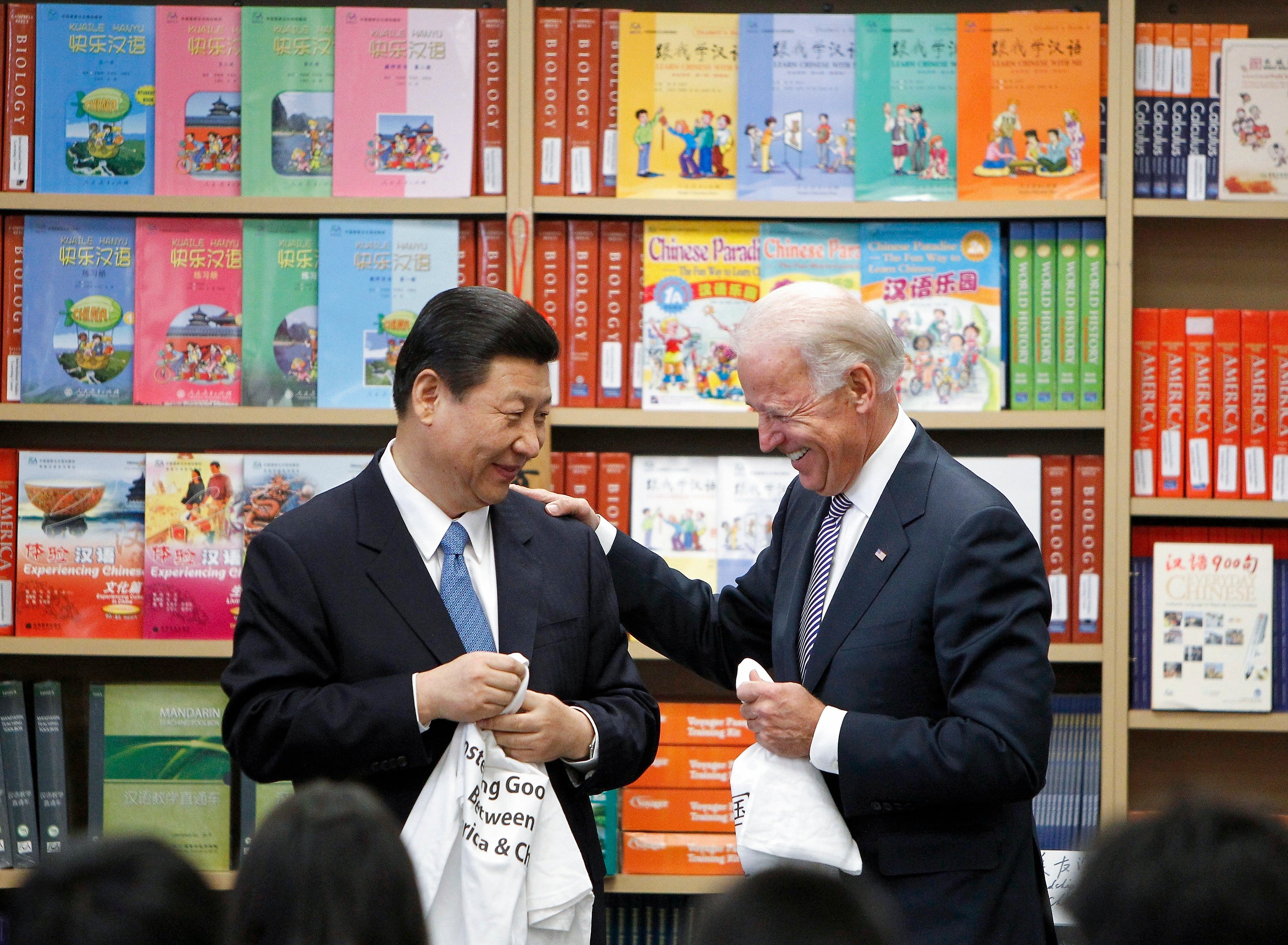US-China summit: Biden set to tell Xi to ‘play by the rules’
The two leaders will seek to set terms for future competition during a lengthy virtual summit

US President Joe Biden is expected to tell his Chinese counterpart Xi Jinping that China must “play by the rules of the road” like a responsible nation during a summit on Monday that is meant to stave off any future conflict between the two superpowers.
A senior US official told reporters that the long-awaited virtual summit, expected to last for several hours, will set the terms for future US-China competition.
Biden is focused on writing those rules “in a way that is favourable to our interests and our values and those of our allies and partners”, the official said, adding that talks with China must be “substantive and not symbolic”. But he also ruled out any tangible outcomes to arise from the meeting.
The meeting will be the third interaction between the two leaders since Biden took office in January, after two phone calls earlier this year.
Both Biden and Xi hope to fix relations between the two largest economies and avoid sliding into a new cold war.
The US and China have locked horns over a litany of thorny issues, including the economic “coercion” of US allies, human rights in Hong Kong, Xinjiang and Tibet and Beijing’s military escalation near Taiwan.
Washington is also concerned about the accelerated build-up of China’s nuclear arsenal and its more aggressive military posture in the South China Sea.
US officials have played down the possibility of progress on trade, where China is lagging in a commitment to buy $200 billion more in US goods and services. Not on Biden’s agenda are US tariffs on Chinese goods that Beijing and business groups hope to be scaled back.
Signs of a possible thaw have emerged recently, however, after the resumption of trade talks, a meeting between US National Security Advisor Jake Sullivan and China’s top diplomat Yang Jiechi in Zurich, and a surprise joint declaration on tackling climate change at the Cop26 summit.
But analysts say contentious issues still plague the relationship and outweigh progress in certain areas, such as climate, where the two sides could virtually meet eye-to-eye.
At the top of those antagonistic issues is Taiwan, the self-ruled democratic island considered a breakaway province by mainland China.
The Biden administration has tried to carve a more prominent place for Taiwan on the international stage. US Secretary of State Antony Blinken said last week that the US and other allies would take an unspecified “action” to defend the island in the event of a Chinese invasion - a new tone that has shaken the longstanding American policy of “strategic ambiguity.”
Beijing fears that the US support would “send the wrong message” to Taiwan’s government, as Chinese Foreign Minister Wang Yi said on Saturday. This effectively means encouraging Taiwanese President Tsai-Ing Wen of taking a sudden unilateral step, such as declaring independence, that would trigger a conflict.
Beijing also has concerns about the US commitment to the “One-China” policy, requiring Washington’s recognition of the People’s Republic of China and establishing exclusive diplomatic relations with its government.
“The Taiwan question is the ultimate red line of China,” the Global Times, a tabloid published by the ruling Communist Party’s People’s Daily, wrote in a Monday editorial.
Foreign ministry spokesman Zhao Lijian told a regular briefing on Monday: “It is hoped that the United States and China will meet each other halfway, strengthen dialogue and cooperation, effectively manage differences, properly handle sensitive issues, and explore ways of mutual respect and peaceful coexistence.”
Xi and Biden last week outlined competing visions, with Biden stressing the US commitment to a “free and open Indo-Pacific,” which Washington says faces increasing Chinese “coercion”, while Xi warned against a return to Cold War tensions.
Additional reporting by agencies
Join our commenting forum
Join thought-provoking conversations, follow other Independent readers and see their replies
Comments


Bookmark popover
Removed from bookmarks